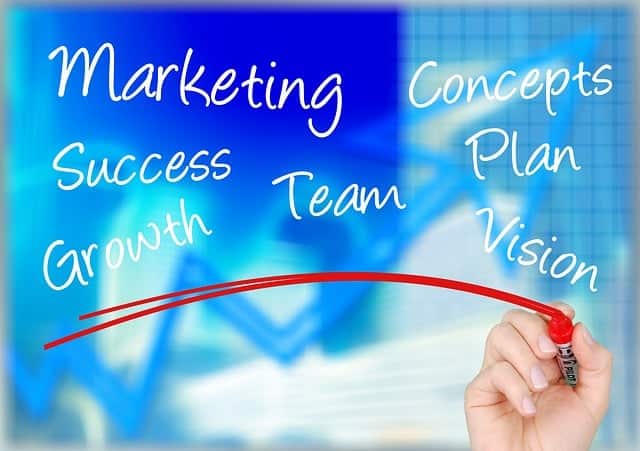Whether it’s a high-level corporate conference or a day-long training session for your team, events are vital to the success of businesses. They allow employees to network, share ideas, and build a bond with the company’s leadership. Planning a successful business event takes a lot of work, from determining the right venue to selecting speakers and booking entertainment. But with a little preparation and forethought, you can make the process easier and help ensure that your event is a resounding success.
There are many things to consider and several event ideas when organizing a successful event. From choosing your target audience to creating a marketing plan, there are plenty of ways you can ensure success for your event. Start with identifying your target audience and building a program that resonates with them. Hiring well-experienced event planners in Atlanta, Georgia, will help you create a more tailored experience and attract the potential audience and the right sponsors.
Let’s learn more about the essentials that every business event needs:
1. Identify Your Target Audience
When preparing for any small business event, it’s important to understand your audience and how to target them best. This makes your marketing efforts more effective and yields a better return on investment. However, it’s advisable to hire a reputed event management company for the best results.
Your target market can be defined by demographics, interests, purchase history and other factors. Using this information, you can create a buyer profile persona and start brainstorming marketing campaigns that will resonate with them.
One of the most effective ways to learn about your audience is to conduct surveys, distribute customer feedback and engage on social media. These are all free and low-cost methods of collecting data. After you’ve gathered a lot of information, it’s time to put it all together. Gathering this information into a database is essential in ensuring that you have a complete picture of your target audience.
This process includes everything from demographics and psychographics to technographic information, including where your customers spend most of their time online and which devices they use to connect with you. It’s all part of a comprehensive customer profile that will ultimately increase your conversion rates, improve your sales and generate more revenue for your company.
It’s also important to find out what pain points your target audience faces. This will help you tailor your marketing messages to appeal to specific groups of people, and it can even give you some ideas on where you can improve your products or services.
Keeping the brand visualization interesting for the audience is crucial for a successful business event. One effective way to achieve this is by incorporating visually appealing elements that align with your brand identity. You can achieve this for instance by leveraging inflatable advertising items or digital displays. Utilizing creative digital displays, such as video walls, LED screens, or interactive installations, can help engage and captivate your audience.
These displays can showcase dynamic content, including videos, animations, and live social media feeds related to your event or brand. Advertising inflatables are another creative solution for a visual representation of the brand. Flotie King’s made-to-order inflatables give you the chance to create all the imaginative solutions that may include your brand elements or stand as a product or emblem replica.
Identifying your target audience is essential for your small business, and it’s easy to get started. Following the latest business event ideas from event management experts will help you build a successful marketing plan that will attract the attention of your ideal customer base.
2. Create a Marketing Plan

If you are starting an event planning business checklist, consider including the best-suited marketing plan for your corporate events. A marketing plan is a great way to set your business goals and establish a strategy to achieve them.
Marketing plans for the business event include research about your market and customers, what marketing materials and methods you will use, and how you will measure your success. Start by defining your company’s mission and vision.
It also helps you keep your business focused and aligned. Without a marketing plan, it can be easy to lose track of what you are doing and make bad decisions. This will help you put all of the information that you have in your marketing plan into perspective and ensure that it reflects your values and overall business objectives.
Once you have established your mission, vision and values, write down all the possible business opportunities that your company or products might have. This can help you identify potential new markets or areas of weakness in your business that may need further analysis and improvement. If you are unsure about the marketing plans, contact a leading event management agency to learn more!
Next, list all the marketing tactics that you are planning on using. This will help you compare them to your mission statement and decide which ones will best support the goals of your business. Lastly, create a marketing budget for your small business.
It’s essential to plan out your marketing efforts and which tactics are feasible within that budget. It’s important to set a clear goal and keep your team on the same page so they can all work toward that goal together. Once you have your marketing plan and an agenda in place, it’s time to get the ball rolling.
3. Build an Agenda
Building an agenda is one of the most crucial parts of organizing an event. This can be a simple bulleted list or a detailed document that outlines the meeting’s topics, activities, and outcomes. Any event space business plan that includes agenda helps attendees stay on track throughout the event.
It is also important to consider your audience’s interests when building an event agenda. Once you have a clear idea of your target audience, then you can start thinking about how to reach them. This could include inviting business partners, community members, or even existing clients to attend your event.
Another thing to consider when building your agenda is whether you want to invite sponsors to participate. This is a great way to get sponsors on board and build a relationship with them that will benefit your business for years to come. Your goal is to attract sponsors who can provide value to your event. To do this, you will need to tell them why they should choose your event over others.
A good proposal for a potential sponsor will make an emotional connection with the company. It should describe how the company started, what it stands for, and its current demographics. It is also a good idea to highlight any recent news that may impact the company. Your agenda should be clear and understandable to the potential sponsors and your valuable audiences.
A quality conference agenda will keep attendees engaged while providing opportunities for sponsors to promote their products and services. In addition, it should offer multiple viewing options so that your attendees can access the sessions they are interested in from anywhere.
A business plan for an event planner is essential to make an event a grand success. Pre-planning is the most crucial step of any corporate event. Event planning that includes clear agenda ensures that everything is in place, and it also allows you to get a head start on marketing your event.
4. Get Sponsors

When planning your small business event, it’s important to consider the types of sponsors that can make a difference. These might include local businesses, restaurants, or even local celebrities. These companies might be able to donate services or products that can help your event save time and money.
The most effective way to get sponsors is through a direct approach. Whether you email, call or meet in person, be sure to make the approach personal by telling them why their business would benefit from supporting your event.
Once you’ve found a few sponsor opportunities, make a detailed proposal and outline what they will get out of the partnership. Then give them some time to review it and decide if they want to work with you.
While this might sound like a lot of work, it’s worth the effort to stand out from the crowd and land a sponsorship deal with a company that will impact your audience.
It’s also easier to secure a deal with a sponsor that knows you and is familiar with your organization’s story. Ideally, you’ll have your sponsorship proposal in hand at least four months before your event date. This allows more time to negotiate the details with your potential partners and plan your budget accordingly. Always remember that a well-detailed business plan for an event planner is essential for preparing any corporate events successfully.
Once you’ve secured a few sponsors, you should prepare a post-event to debrief to discuss what went well and what could have been improved upon. This will allow you to learn from your experience and take steps to ensure your next event is more successful.
Be sure to include questions that will encourage your team to think about ways to improve the next event. Keep collecting event planner business cards and keep them handy when planning your next big corporate event for professional guidance from them.
5. Create a Post-Event Debrief
After you’ve put all that time, energy and effort into a successful small business event, you’re probably ready to take a break. But there’s one more important step before you can call it a day: create a post-event debrief.
The point of a debrief is to gather the information that will allow you to improve your next event and keep people happy and coming back for more. The best way to do this is by gathering feedback from all of your stakeholders, including attendees and vendors.
You can collect this data in several ways, but the best approach is to send out post-event surveys to your guests and vendors. They’ll provide a fresh perspective on your event and might even have some insights you hadn’t considered. It’s also a great time to check in with your key stakeholders and see if they had any issues during the event.
For the most accurate feedback, you need to make sure that you’re asking the right questions at the right time. This means establishing clear objectives and expectations for the event before you begin.
Once you have those clearly defined, set up a post-event debrief to evaluate goals and measure success. Hire a leading event management agency if you are unsure about how to plan a post-event debrief.
You can also create a template for your debrief meetings to help structure a meaningful discussion that will draw valuable feedback from your team members. A template can also help you avoid discussions that veer off track. An event space business plan is essential while planning post-event surveys and debriefs. Keeping handy all the event planner business cards will be helpful while planning an event.
You may want to consider online project management software that can streamline all of the tiny details and save you a ton of time. Even if you don’t use a dedicated tool, starting an event planning business checklist will help you plan your post-event debrief well in advance.
Below are the Event Planning Skills Essential to Create a Successful Business Plan for Event Planner.
If you want to plan a big or small business event successfully, the below-mentioned are certain skills you need to hone. These include attention to detail, organization, communication, negotiation, and creativity.
1. Attention to Detail
Whether you’re planning an event or hiring someone else, you need to ensure everyone is on the same page. Attention to detail is a key skill that can help you avoid making small mistakes that could hurt your event’s outcome. It also shows that you’re willing to take the time to plan and organize the details of a project. Paying attention to detail is an essential skill for anyone who works in a fast-paced environment. It increases efficiency and helps you meet deadlines and goals on time.
2. Organization
The organization is one of the most important skills to have when planning an event. It helps keep your team on track and ensures that all tasks are completed. Creating an organized checklist can help you stay on top of every detail and make sure that everyone has all the information they need to complete their jobs. It can also be helpful to share your checklist with others so that they know any specific tasks they need to complete on the day of the event.
3. Communication

Pre-Event Communication – Before your event, you’ll want to create a plan to communicate with your audience, so you can increase attendance and engagement by sharing teasers, snippets of what’s in store, and other valuable content. Effective communication is one of the most important skills you need to have as an event planner. Not only does it ensure the success of your event, but it also sets up the trust and enables you to build relationships with key stakeholders.
4. Negotiation
When you’re planning an event, you need to be able to negotiate with your vendors. This skill allows you to secure the best possible deals for your clients and build long-term partnerships with your suppliers.
A successful negotiation requires clear communication and the ability to listen effectively. In addition, being able to establish rapport with your vendors can lead to effective negotiations. Negotiations also require a strong sense of integrity and a willingness to follow through on commitments.
5. Creativity
When planning an event, it is important to think of creative business event ideas that will make your event stand out from the rest. This skill can be developed through experimenting with different ideas and themes. An event planner who is good at creativity will be able to infuse passion and originality into each of their events, making it more memorable for the client and creating a positive experience for them. In addition to being creative, event planners must also be resourceful and adaptable.
Key Takeaways
Before you start planning a business event, it’s important to determine the goals and objectives of your event. It is also important to have resilience and adaptability, especially when things go wrong during an event. A good planner will be able to keep cool in any situation and still come up with a solution. Hiring a leading corporate event management company is always advisable for all your business event needs and requirements.
AUTHOR BIO
Nirjary Desai, Chief Experience Officer and Founder of KIS (cubed) Events believe in creating one-of-a-kind event experiences with a serious wow factor for some of the world’s most well-known brands, celebrities, and personalities. She is passionate about international travel, socially conscious enterprises, and developing inclusive communities.












Leave a Reply